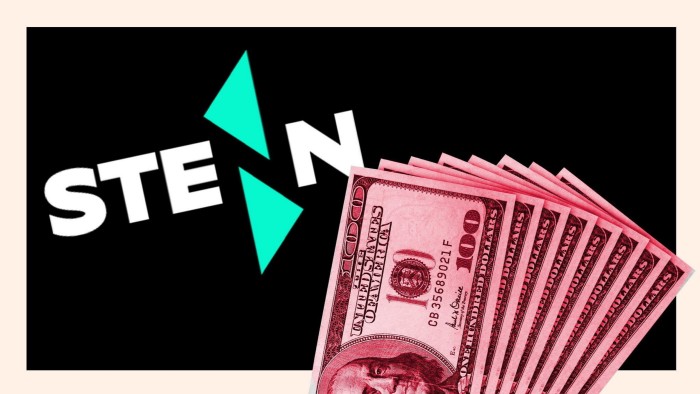Stay informed with free updates
HSBC pushed UK fintech Stenn into administration last year after discovering that it had received hundreds of millions of dollars from a web of linked companies in countries such as Serbia, whose names often appeared to ape those of large, well-known businesses.
London High Court documents obtained by the Financial Times show that HSBC alleged that Stenn received the money from companies with similar names to “blue-chip companies”, such as electronics group Foxconn, but that had no connection to the larger businesses. Millions were also received from a business solely owned by a villager in a remote region of China.
The documents shed new light on the events leading to the collapse of Stenn, which specialised in invoice financing and once boasted a $900mn valuation and partnerships with international banks such as Citigroup. The information raises further questions about the oversight of a company that was regulated by the Financial Conduct Authority for anti-money laundering purposes.
Stenn had its two UK units placed into administration in December after an application to London’s High Court from HSBC Innovation Bank, the former Silicon Valley Bank UK which was one of the fintech’s lenders.
The FT previously reported that a reference to Stenn in a US criminal indictment about a Russian money laundering scheme prompted HSBC to begin probing potentially suspicious transactions. Stenn was not accused of wrongdoing in the case.
In a written submission to court, HSBC’s lawyers stated that it had issued a default notice on a $35mn loan to Stenn after an investigation discovered that “payments have not been made by the large blue-chip companies named on the invoices”.
“Instead, payments have been made by companies incorporated in countries such as Serbia which have no connections to the blue-chip companies named on the invoices and frequently fail to file any accounts before being placed into forced liquidation by regulators,” HSBC lawyers wrote, claiming that there “could be no conceivable explanation or justification” for the transactions.
The Serbian companies include businesses with similar names to Spain’s biggest oil company Repsol and Hon Hai Precision Industry, the Taiwanese electronic manufacturing business commonly known as Foxconn.
These Serbian businesses also included a company with a similar name to a Singapore-based technology group. The companies all had connections to two Serbian individuals named in the document and all three companies have been placed into “compulsory liquidation”, HSBC’s lawyers claimed in the documents.
“It seems highly unlikely that the Taiwanese electronics components manufacturer, the Singaporean technology company and the Spanish multinational energy and petrochemical company would all have group companies featuring” the same Serbian individual as a director, HSBC’s written arguments stated, noting that none of the three large groups appeared to even have Serbian subsidiaries.
Stenn also received payments from a “Zalando SE Limited” incorporated in Hong Kong, the director and shareholder of which did “not have any links to Zalando SE” in Germany. The German online retailer also “has no operations whatsoever in Hong Kong”, the bank’s submission stated.
One of Zalando SE Limited’s directors was a director of Green Bean Trading Limited, another Hong Kong company that paid $1.6mn into Stenn’s bank accounts with Citigroup. Green Bean’s sole shareholder was an individual based in China’s Liaoning province.
“This address is located in what appears to be a remote village in China, consisting of very small dwellings,” according to the bank’s court submission. “It seems unlikely that a legitimate company making substantial payments would have a single shareholder in a small rural village.”
HSBC alleged that Stenn’s invoicing issues were “extensive and systemic”, noting that the total value of the invoices it had flagged in 2023 and 2024 exceeded $220mn.
Stenn did not oppose HSBC’s filing and its two main UK units were placed into administration the same day. Stenn’s administrator wrote in a report earlier this month that it was aware of “allegations concerning potential irregularities prior to insolvency”.
Stenn’s founder and chief executive Greg Karpovsky was previously involved in a Russian invoice finance company that later collapsed amid fraud allegations.
Karpovsky told the FT in December that he denied “any wrongdoing in connection with Stenn”, while “any potential wrongdoing” in his previous Russian business was “proved to have taken place long after my departure from the company”.

